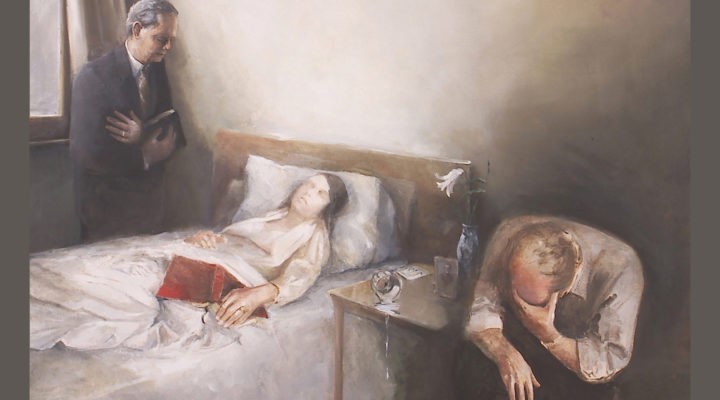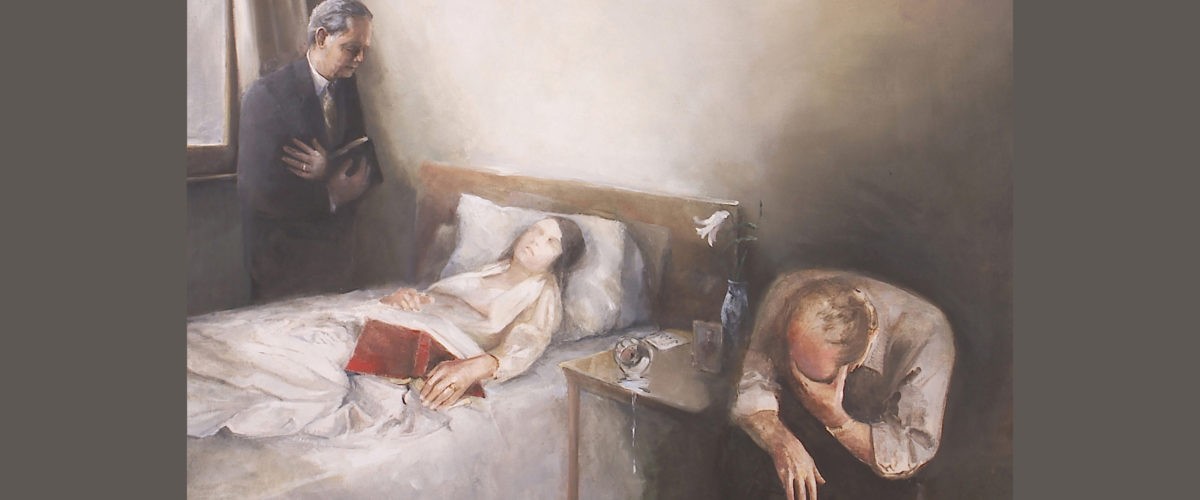We were riding in a limousine to the graveside. Most of the people in the car were family so — except for the masks — the conversation was comfortable and familiar.
Then the funeral director said: “See those smokestacks. That’s the crematorium. They have been going non-stop since this thing began.”

Brett Younger
The conversation stopped. The silence was painful, but thinking about death made the graveside feel more holy. We should not hurry to hope before we sit for a while with sadness. We need to be honest about despair, so that when the new day finally comes we will recognize it.
We know the statistics. The number of deaths from COVID-19 in the United States is more than 200,000. The number worldwide is more than a million. The United States is about 4% of the world’s population and has 20% of the world’s coronavirus deaths. The president has put his political goals above the lives of victims, but we have suffered from a failure of leadership at many levels.
Our country appears willing to accept huge numbers of deaths. Americans tend to value the individual over the group, and dealing with a pandemic requires individuals to make temporary sacrifices for the benefit of the group.
This is a hard time to live with faith. Our leaders encourage us to downplay the death that surrounds us. Anyone who speaks passionately for those who are dying appears weak.
Americans have come to accept the idea that other Americans will have to die for their comfort. You know the Jewish saying, “When a person dies, a whole world dies.” Each life lost represents an entire world, not only of those individuals, but also to their family and friends.
“Americans have come to accept the idea that other Americans will have to die for their comfort.”
This virus has made us think about our own deaths. We worry about how much danger we are in. We take our temperature. We sneeze and wonder if that is a symptom. When we read about someone our age dying of COVID-19, we figure out how we are not like them — “He was overweight, wasn’t he?”
How are we supposed to feel about the death that encircles us? Will thinking about the pandemic every day push us into a depression from which we will not recover? Or is it possible that a year from now we will have fuller lives because we have thought about death?
We try to keep our distance from death. Advances in medical science have been wonderful benefits to those who have the means to buy them, but our success in dealing with security threats and physical ailments distorts reality.
Some deny the possibility of death right up until their final breath. Others show compassion by caring for the people who are grieving for them. Most people who live courageously die courageously.
On my first trip to the nursing home to visit Sue Bourne, we were discussing this and that, when out of the blue she asked, “Are you afraid to die?”
The correct answer for a minister is “No, not at all,” but the honest answer for me was, “Yes, Mrs. Bourne, it scares me.”
She smiled, “It doesn’t scare me a bit.”
She had no fear of death, because she knew who she is and where she was headed. Just before I left on that first visit, she asked me to say a prayer. On many occasions after that, our conversations were a prelude to the prayer, the preamble to asking God to give us courage.
“On many occasions after that, our conversations were a prelude to the prayer, the preamble to asking God to give us courage.”
On the day of her death, early on Sunday morning, I went to the hospital to sit with her daughter and son-in-law. The minutes passed with Mrs. Bourne’s breaths becoming less frequent. Then she just stopped. We say that people pass away, that they leave, but it felt like the world passed away from her.
It was getting close to time for church, but I was uncomfortable leaving. Richard, her son-in-law, looked at his watch and said: “You need to go to church. She doesn’t need you here. She needs you to go to worship and tell them what you saw. Tell them they don’t have to be afraid. She’s fine.”
When we see death and find tears in our eyes, God is inviting us to know God’s sorrow and hope. Every death calls us to live more deeply.
When we understand that we are safe in the hand of God, then fear is smaller than hope. We live in God’s love, now and forevermore.
Brett Younger serves as senior minister of Plymouth Church in Brooklyn, N.Y., and is author of the new book Funny When You Think about It: Serious Reflections on Faith.


